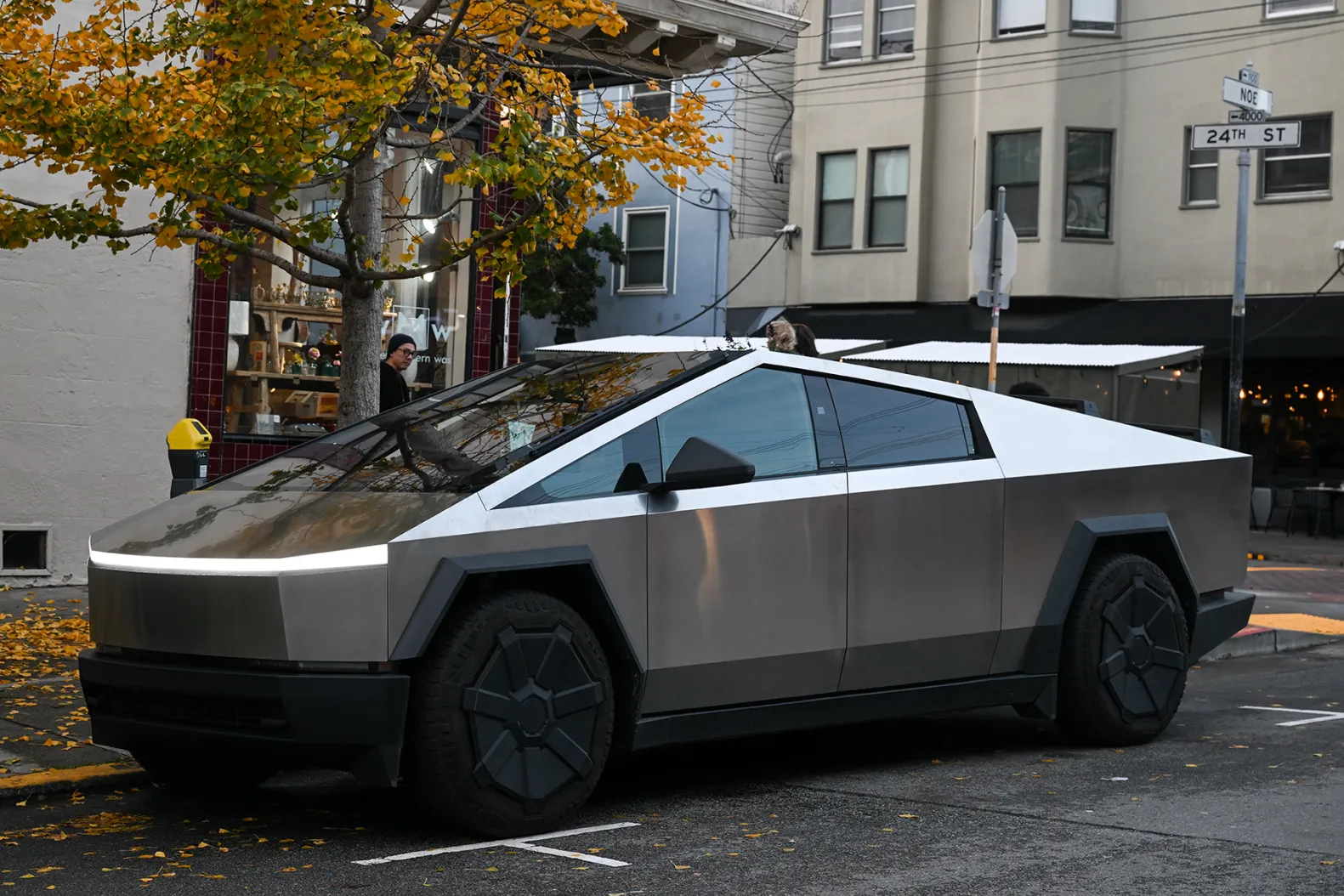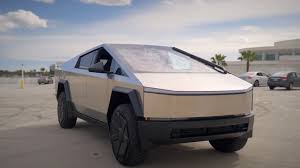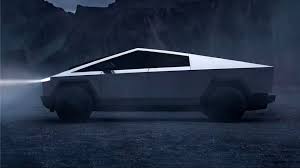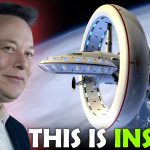Elon Musk’s Tesla Cybertruck recalled again over safety concerns!

Elon Musk’s Tesla Cybertruck Recalled Again Over Safety Concerns
Introduction: A Setback for Tesla’s Bold Vision
Elon Musk’s Tesla Cybertruck has been one of the most eagerly anticipated vehicles in recent years, promising to revolutionize the electric truck market with its futuristic design, advanced technology, and performance capabilities. Since its unveiling, the Cybertruck has captured the imagination of consumers and industry experts alike, with Musk vowing that it would be the toughest and most durable truck on the road. However, Tesla’s ambitious foray into the electric pickup market has faced its share of challenges along the way, and the latest development is another setback for the Cybertruck’s highly publicized launch.
Tesla has once again issued a recall for the Cybertruck due to serious safety concerns, raising alarms among consumers, regulators, and industry analysts. This latest recall involves issues related to the vehicle’s safety features, specifically concerns about the truck’s braking system and potential risks of malfunction in certain driving conditions. While recalls are common in the automotive industry, the frequency and nature of issues surrounding the Cybertruck have raised questions about Tesla’s ability to maintain the high standards it has set for itself. In this article, we will delve into the details of the recall, the safety concerns that prompted it, and the potential impact on Tesla’s reputation and future success in the electric vehicle market.
The History of the Tesla Cybertruck: From Innovation to Challenges
The Tesla Cybertruck was first unveiled in November 2019 with much fanfare, attracting global attention for its radical design and ambitious claims. The truck’s angular, stainless-steel body and minimalist interior were unlike anything seen before in the automotive industry. Tesla positioned the Cybertruck as the future of trucks—offering a blend of extreme durability, off-road capabilities, and high-tech features that would appeal to a broad range of consumers, from utility truck enthusiasts to eco-conscious buyers.
Tesla’s bold promise to revolutionize the pickup truck market was further fueled by the truck’s impressive performance metrics. With a starting price well below traditional pickup trucks from manufacturers like Ford and Chevy, the Cybertruck promised a longer range, quicker acceleration, and unparalleled toughness. Consumers flocked to reserve their vehicles, with over 250,000 preorders placed in the first few days following the announcement.
However, despite the immense interest and early excitement, the Cybertruck has faced a series of hurdles as it moves closer to production. Tesla has experienced delays in production timelines, struggles with scaling up manufacturing, and technical issues that have raised concerns among early adopters and industry analysts. Each setback has put the vehicle further behind schedule, frustrating those eagerly awaiting the release of the truck.
This latest recall, though, is perhaps the most significant challenge yet for the Cybertruck, as it concerns the very safety features that Tesla has promised to be a hallmark of its vehicles. The recall raises questions about whether the company’s commitment to innovation and speed might be coming at the cost of quality control and safety standards.
The Recall: A Closer Look at the Safety Concerns
The Tesla Cybertruck’s recall is focused on potential issues with the vehicle’s braking system. According to the National Highway Traffic Safety Administration (NHTSA), the truck may experience a failure in its braking system under specific driving conditions, posing a serious safety risk to drivers and passengers. The recall involves a limited number of Cybertruck units that were manufactured and shipped to consumers, though Tesla has not yet disclosed how many vehicles are affected.
The safety concern stems from an issue with the truck’s automatic emergency braking system, which is designed to prevent collisions by automatically applying the brakes if the system detects an imminent crash. However, it appears that under certain conditions, the braking system may fail to activate properly, particularly when the vehicle is operating at high speeds or in emergency situations. In addition, the truck’s rear braking components are reportedly malfunctioning, causing an inconsistent braking response that could lead to an increased risk of accidents.
Tesla has stated that it is working closely with the NHTSA to address the issue and ensure that the affected vehicles are brought in for repairs as quickly as possible. The company is expected to release an over-the-air software update to address the malfunction and make the necessary adjustments to the braking system. While this over-the-air fix is an efficient solution that has become a hallmark of Tesla’s approach to vehicle maintenance, the issue has nonetheless raised concerns about the vehicle’s readiness for mass production and public safety.
The recall comes at a particularly challenging time for Tesla, as the company continues to face increasing pressure to deliver on its promises for the Cybertruck’s launch. While Tesla’s other models, such as the Model 3 and Model Y, have seen tremendous success, the Cybertruck represents a pivotal moment for the company as it ventures into the competitive and highly regulated truck market. Any safety-related setbacks could have long-lasting repercussions on Tesla’s brand image and consumer trust.
The Impact on Tesla’s Reputation and the Electric Vehicle Market
This latest recall highlights the tension between Tesla’s drive for rapid innovation and the need to maintain high safety and quality standards. Tesla has built its reputation on being an industry disruptor, pushing the boundaries of what’s possible with electric vehicles and automotive technology. However, the company’s aggressive timeline for innovation has sometimes led to missteps, and this recall raises questions about whether Tesla is prioritizing speed over safety.
Elon Musk’s bold vision for the Cybertruck, including its rugged design and impressive features, has garnered significant attention, but some critics have raised concerns about the vehicle’s readiness for public release. The latest recall only exacerbates these concerns, as it suggests that the Cybertruck may not be as flawless as initially advertised. In an era where safety is paramount and consumers expect the highest levels of reliability, any issues with a vehicle’s core safety systems can have a significant impact on public perception.
For Tesla, the recall is not just a technical issue—it’s a reputational one. As a company known for its cutting-edge technology, Tesla’s commitment to innovation and quality is constantly scrutinized. The Cybertruck, as one of the most anticipated electric vehicles in history, has attracted attention from both fans and skeptics. A failure to address safety concerns could damage Tesla’s reputation as a leader in the electric vehicle space and erode consumer confidence in the company’s ability to deliver on its promises.
In addition to its impact on Tesla’s reputation, the recall could have wider ramifications for the electric vehicle market as a whole. The Cybertruck was seen by many as a game-changer—a vehicle that would redefine what an electric truck could be. If the truck fails to meet the high standards set by Tesla, it could discourage consumers from making the switch to electric vehicles, particularly in the highly competitive pickup truck market. While Tesla remains a dominant player in the electric vehicle space, its ability to successfully launch the Cybertruck and navigate safety concerns will be closely watched by both consumers and competitors alike.
What’s Next for the Tesla Cybertruck?
Despite the challenges surrounding the Cybertruck, Tesla remains committed to delivering the vehicle to consumers as soon as possible. Elon Musk has repeatedly expressed his confidence in the vehicle’s potential, emphasizing that the Cybertruck’s rugged design and advanced features make it a standout in the crowded truck market. Tesla’s ability to bounce back from setbacks and address issues quickly has been one of the company’s strengths, and it is likely that the company will work diligently to resolve the current safety concerns.
The recall and its implications serve as a reminder of the challenges faced by companies that are pushing the boundaries of technology. While the Cybertruck’s futuristic design and bold features have captured the public’s imagination, the reality of bringing such an ambitious vehicle to market is more complex. Tesla must balance its innovative ambitions with the necessary steps to ensure that the vehicle is safe and reliable for consumers.
For those eagerly awaiting the Cybertruck’s arrival, the latest recall may be disappointing, but it’s not necessarily a death knell for the vehicle’s future. The over-the-air software fix, combined with Tesla’s commitment to quality, could help mitigate the current issues and pave the way for a successful launch. However, the company will need to continue to focus on safety and reliability to ensure that the Cybertruck lives up to its promises.
Conclusion: A Test for Tesla’s Bold Vision
Elon Musk’s Tesla Cybertruck has captured the attention of the world with its daring design and revolutionary features. However, the latest recall over safety concerns serves as a stark reminder of the challenges that come with pushing the envelope in the automotive industry. For Tesla, the recall represents a setback in its efforts to redefine the truck market, but it also offers an opportunity to showcase the company’s ability to resolve issues quickly and efficiently. As the company works to address the safety concerns, the future of the Cybertruck—and its place in Tesla’s broader vision for electric vehicles—remains uncertain. The recall is a test for Tesla’s ability to balance innovation with safety, and how it handles this issue will have lasting implications for the company’s reputation and the future of the electric vehicle market.











